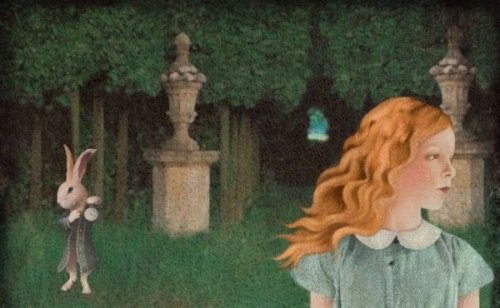Wasting Time Is as Important as Using It


Written and verified by the psychologist Valeria Sabater
Wasting time is a relative concept that we should consider from another perspective. For example, as a valuable key to our well-being. Let’s think about it. We live in a society that has us convinced that time is money and that we must make the most out of every second of our life.
This undoubtedly leads us to the already familiar and recurring maze of stress and anxiety disorders that result from self-neglect. Thus, time isn’t money, gold, or silver. Time’s a lot more valuable because time is life.
Time management
Knowing how to manage it and allowing ourselves to do absolutely nothing from time to time leads to peace of mind. However, we often have a hard time doing it because we’ve spent many hours of our life in “productivity” mode. Our mind learned to interpret lying on the couch and resting as a waste of time.
In contrast, there are “experts” in time management, such as Dr. Alex Soojung-Kim Pang, known for his work as a consultant in Silicon Valley. He explains in his book, Rest: Why You Get More Done When You Work Less, that it’s time to change our lifestyle. We need to understand that sometimes “wasting” time is winning as it allows us to recharge and find peace.
Wasting time is gaining life

Max Weber, a well-known 20th-century philosopher, economist, and sociologist, believed that, with the arrival of the industrial revolution, people began to relate to their work activity almost religiously. Working was no longer just a way to make money to survive. Instead, it was and still is a way of life.
For many, work dignifies human beings. Activity equals productivity. While this is partly true, we tend to take it to the extreme most of the time, so much so that some people are unable to relax.
Believing that inactivity is synonymous with wasting time leads to psychological exhaustion. For example, an interesting study conducted by Dr. Leonard Reinecke at the Johannes Gutenberg University Mainz in Germany points out that many people think less of themselves when they spend some time watching television because they feel guilty about their inactivity and consider it a waste of time.
Don’t be like the white rabbit

“Oh dear! Oh dear! I’m going to be late!” This is what the white rabbit in Alice in Wonderland said. This endearing character symbolizes the hyper-busy life many people lead. Admit it, we always think there’s something to do and we’re always busy looking at the clock.
We continuously feed these types of behaviors that lead to the abyss of anxiety and exhausting psychological states.
The culture of productivity and perfection makes us feel guilty for the mere fact of dedicating some of our time to doing nothing. Sometimes our mind tortures us with thoughts about all the things we supposedly should be doing.
Give yourself time
Sometimes, wasting time doesn’t really take anything away from you. It’s quite the opposite. Think about it, it’s time to stop believing that you have to be productive every minute of your life. This is the ideal moment to allow yourself to be a child again. To let yourself be bored to finally feel free, relaxed, and even playful.
You should do nothing for several hours a day, as this instills creativity and reflection. In fact, we must understand that working better doesn’t necessarily mean working more. In fact, working fewer hours is a lot more productive and our quality of life will improve.
As a final thought, you should learn to give yourself this exceptional gift. Give yourself time and the opportunity to simply limit yourself to be, exist, and enjoy life to the fullest with your five senses.
All cited sources were thoroughly reviewed by our team to ensure their quality, reliability, currency, and validity. The bibliography of this article was considered reliable and of academic or scientific accuracy.
- Soojung-Kim Pan, Alex (2017) Descansa, produce más trabajando menos. Madrid: LID
This text is provided for informational purposes only and does not replace consultation with a professional. If in doubt, consult your specialist.








